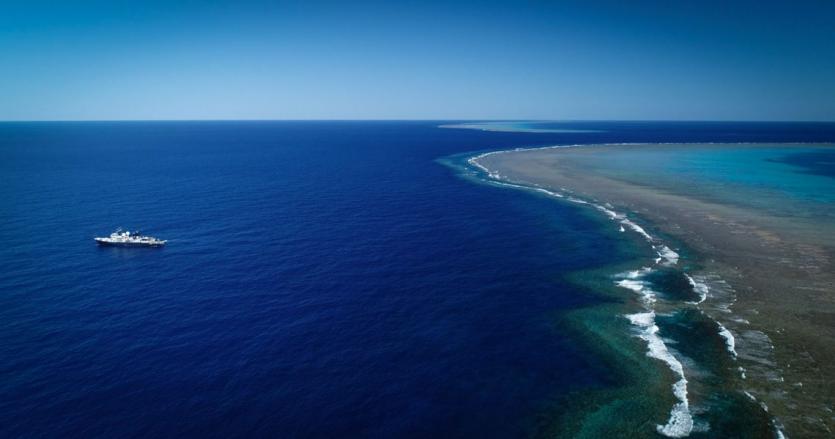R/V Falkor holding position on the outside of Ribbon Reef #5 as ROV SuBastian works its way up the shelf, working to reveal – for the first time – evidence into the origins of the Great Barrier Reef.
New coral reef discovery made by Australian scientists
By Patryk Krych | The World Daily | OCTOBER 28th 2020
A detached coral reef exceeding the size of the Empire State Building was discovered by Australian scientists in the Great Barrier Reef, according to a recent statement from the Californian non-profit Schmidt Ocean Institute (SOI).
The rather mountainous coral reef was discovered near the Great Barrier Reef’s Northernmost tip, the Australian scientists said. They further added that this was the first such discovery of its kind in nearly 120 years. Given that the coral reef exceeds 500 metres in height, it can be said to be taller than the Empire State Building in the US’s New York.
“To find a new half-a-kilometre tall reef in the offshore Cape York area of the well-recognised Great Barrier Reef shows how mysterious the world is just beyond our coastline,” said Dr Jyotika Virmani, and SOI executive director. “This powerful combination of mapping data and underwater imagery will be used to understand this new reef and its role within the incredible Great Barrier Reef World Heritage Area.”
The vertical reef was described as “blade-like” and was successfully mapped during a 3D seabed mapping exercise, made via the research vessel Falkor, owned by the SOI during an expedition.
“It’s a big reef not to have known about,” said the principal investigator of the expedition, Tom Bridge, from the ARC Centre of Excellence for Coral Reef Studies at James Cook University. “What it highlights is how little we know about a lot of the ocean, even the Great Barrier Reef. The marine park is 344,000 square kilometres – bigger than many European countries – and only about 6 or 7% of that is typical shallow-water reefs.”
It’s a well-known fact that around 80% of the ocean remains unexplored to this day. A discovery like this one may highlight the grand size and difficulty in discovering new things in such a ginormous and often incomprehensible environment.
“We know more about the surface of the moon than we know about what lies in the depths beyond our coastlines,” Bridge added.
This particular, newly discovered reef is what’s known as a detached reef – a type of reef that’s not a part of the body of the Great Barrier Reef despite being embedded to the ocean’s floor. It’s been said that the new reef has “an incredible abundance” of sponges, sea fans and soft corals, as well as an apparent lack of any harder or tough corals in its upper sections. This may suggest that the reef is rich with nutrients.
An underwater robot named SuBastian was used to explore the reef. Its live video feed revealed that the reef was teaming with reef fish, which included many tiny hatchetfish and silvertip, as well as grey reef sharks.






